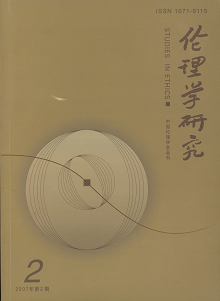|
|
Ethic Inquires from GDP Worship to GNH Concern
LUO Jian-wen, DENG Ming-jun
2007(2):
52-58.
The change from GDP Worship to GNH Concern is a change of two viewpoints of development,and its essence is a change of a kind of brand-new annotation and evaluation standard to happiness. GDP Worship,whose essence is the only worship to efficiency,has stimulated the development of economy,but has brought out moral confusion and series of social problems too. The belief of GNH concern and development,which is consisted of four extremes that are the harness of government,the growth of economy,the development of culture and the protection of environment,has become governmental belief and administrative belief of our Party and government,which is of positive ethical significance and must be paid highly attention.
|



